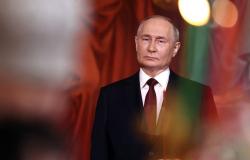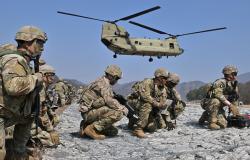Hello Leen, one of the items on the agenda during the visit was not so much about their mutual relationship, but the war in Ukraine. What exactly is going on there?
‘What the United States is concerned about is that Beijing is trading heavily with Moscow, despite Western sanctions. The US is concerned about the supply of so-called dual-use products, which can be used for both civilian and military purposes. This concerns, for example, chips, but also certain optical lenses or machine tools. You can also make weapons with it. The US wants China to stop there immediately. The Chinese government says this concerns normal trade. The US has no business interfering in this at all, the leaders here say.’
The US increasingly says that China has sided with Russia in the war with Ukraine. How does Beijing respond to this?
‘Since the start of the war in Ukraine, the Chinese government has claimed to be neutral in the conflict, but in practice China consistently defends Russia’s motives for invading Ukraine. You hear here that NATO and the US are at least partly to blame for the conflict.
‘Until now, the Chinese government has tried to find a happy medium between keeping the West friendly and supporting its ideological partner Russia, also in an economic sense. You can say that they have succeeded well in this so far: they still trade with both the West and Russia.
‘In the West, political leaders have now reached a point where they realize that the Chinese-Russian relationship could influence the outcome of the war in Ukraine. That is also the message with which Blinken traveled to China.’
Does the Chinese government appear to be planning to change its policy?
‘Very little can be concluded from Xi Jinping’s final statement after the visit in that area. The word Ukraine is not mentioned once. In the statement of his foreign minister Wang Yi, you can also see that he repeats that the US is to blame for the increased tensions between the two countries. It is true that China will never publicly announce a change in policy. Whether China restricts trade with Russia will depend in advance on the sanctions that the US and possibly European allies are prepared to take.’
What other themes were on the agenda during this visit?
‘The US and China also find themselves in diametrically opposed positions in a series of other conflicts. For example, about the war in the Gaza Strip and the conflict between Israel and Iran. It also discussed the territorial tensions in the South China Sea, where there have been many collisions between ships of the Philippine and Chinese coast guards in recent months. And then there is Taiwan, which is intimidated by Chinese planes and ships on an almost daily basis.
‘What’s interesting: Blinken came here with the message that he also has his European allies behind him. He mentioned this several times at the press conference after the visit.
‘The pressure on China is increasing from both the United States and Europe. For example, the EU recently launched an investigation into unfair competition from electric vehicles from China. In recent days, several reports have also emerged about people who have been arrested in Germany and the United Kingdom on suspicion of spying for China. On the American side, additional investigations are being initiated into unfair state aid and additional import tariffs are being considered. So you see leaders on both sides of the Atlantic moving to call China to order: this far and no further.’
Biden and Xi agreed at the end of last year to commit to dialogue to prevent ‘misconceptions and conflicts’. How successful can that be, when the countries seem to have such fundamental differences?
‘The enormous range of points of contention makes this relationship extremely difficult. You can say that it is positive that the US and China are in dialogue with each other again, because that has only been the case since the end of last year. But the interfaces and room for compromise are very limited. You hardly see any rapprochement anymore.
‘Due to the enormous contrasts, the bar for this visit is actually very low. The main objective at the moment seems to be to prevent misunderstandings from arising due to a lack of communication. In a very tense relationship, misfortune is easy to come by. There has also been progress in that respect, for example because military leaders of both countries are now talking again.’
You were in Beijing at the largest car fair in China. The automotive industry is making significant progress. How important is it for the Chinese economy?
“The development of electric cars is one of Xi Jinping’s political priorities. He sees technology as the engine of the economy. For him, the success of the high-tech industry determines whether China will succeed in becoming a leading world power. Xi is therefore making enormous investments in all kinds of technological sectors, such as electric vehicles and other green technologies. If you go to a car fair like this, it is almost impossible to keep up with the innovations.
‘That focus also has disadvantages. On the one hand, it causes unbalanced growth of the Chinese economy. By placing all the emphasis on the technology industry, other sectors are left out in the cold. Partly because of this, and also because of a real estate crisis that has been going on here for three years, Chinese consumers are currently feeling very insecure. As a result, they don’t spend money and save even more than they normally do.’
You pointed out that this also has consequences for the markets in the US and Europe.
‘Western car brands look at all these innovations and think: ‘How can we ever compete with this?’ There is a risk that Chinese cars will flood Western markets. You hear leaders in the US and Europe complain that there is no level playing field. They want Chinese state interference in the economy to decrease. That was also a focus of Blinken’s visit.
‘Instead of seeing the Chinese government making a retreat, you see it increasingly interfering in the economy. The question is whether all measures taken by the US and the EU will have any effect. There is no doubt that they can make things more difficult for China. But state interference in the economy is a fundamental feature of the way this country is governed. It will be very difficult for the US and the EU to get that changed in a substantial way.’






